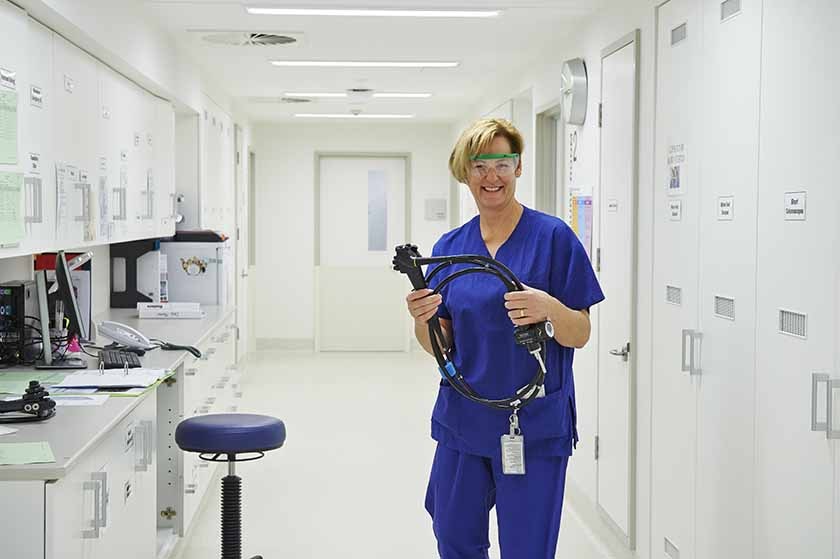Bowel cancer is preceded by polyps, which may become invasive cancer if undetected.
What is a polyp?
A polyp is a small stalk-like protrusion of tissue that grows out of the membranes lining various areas of the body.
Polyps can be adenomas, of which a small percentage can turn malignant given time, or hyperplastic polyps which are usually harmless unless they contain an adenoma.
The exact cause of intestinal polyps is unknown, but diet, lifestyle and genetics are all thought to contribute.
Most colorectal polyps have no symptoms, but possible symptoms can include:
- Blood in the faeces
- Clear mucus in the faeces
- Diarrhoea or constipation
- Abdominal pain
- Rectal bleeding can also be caused by haemorrhoids, which are varicose veins in the rectum or anus. It is still important to see a doctor if you notice bleeding, however, to rule out cancer.
Oncologist Sanjay Mukhedkar from OncologyWest says bowel cancer is still a disease of the elderly although if you have a family history of bowel cancer, you should get some genetic testing done.
“If it’s in your family, have some genetic tests or have an early colonoscopy.”
Bowel cancer screening
A faecal immunochemical test (FIT) is a screening test that can detect small amounts of blood in your faeces.
The test looks for blood, not for bowel cancer itself.
You can do the FIT at home by placing small samples of faeces on special cards and sending them to a pathology laboratory for analysis. The results are then sent back to you and your doctor.
If you are over 50 years old, you may be eligible for the Australian Government’s National Bowel Cancer Screening program – check your eligibility.
Tel: 1800 118 868
Website: www.health.gov.au/our-work/national-bowel-cancer-screening-program
For those not eligible for the government’s screening program, visit https://www.bowelcanceraustralia.org/screening or speak to your GP.
Bowel Cancer Australia has created an app that provides information on bowel cancer, such as healthy lifestyle changes you can make and a treatment diary for those already being treated for the disease.
Website: www.bowelcanceraustralia.org
(1) Australian Institute of Health and Welfare 2012. National Bowel Cancer Screening Program monitoring report: phase 2, July 2008-June 2011. Cancer series no. 65. CAN 61. Canberra: AIHW.







